Baby Bath Time: A Guide to Bathing Your Baby
Make bath time with baby a special time. Make it one of the moments you look forward to in your day. Amongst the bubbles, splashing and cooing, it’s your opportunity to connect and bond with baby.

2-Step Baby Bath Routine
Try our 2-step bath time routine, uniquely designed to keep your newborn’s delicate skin soft.
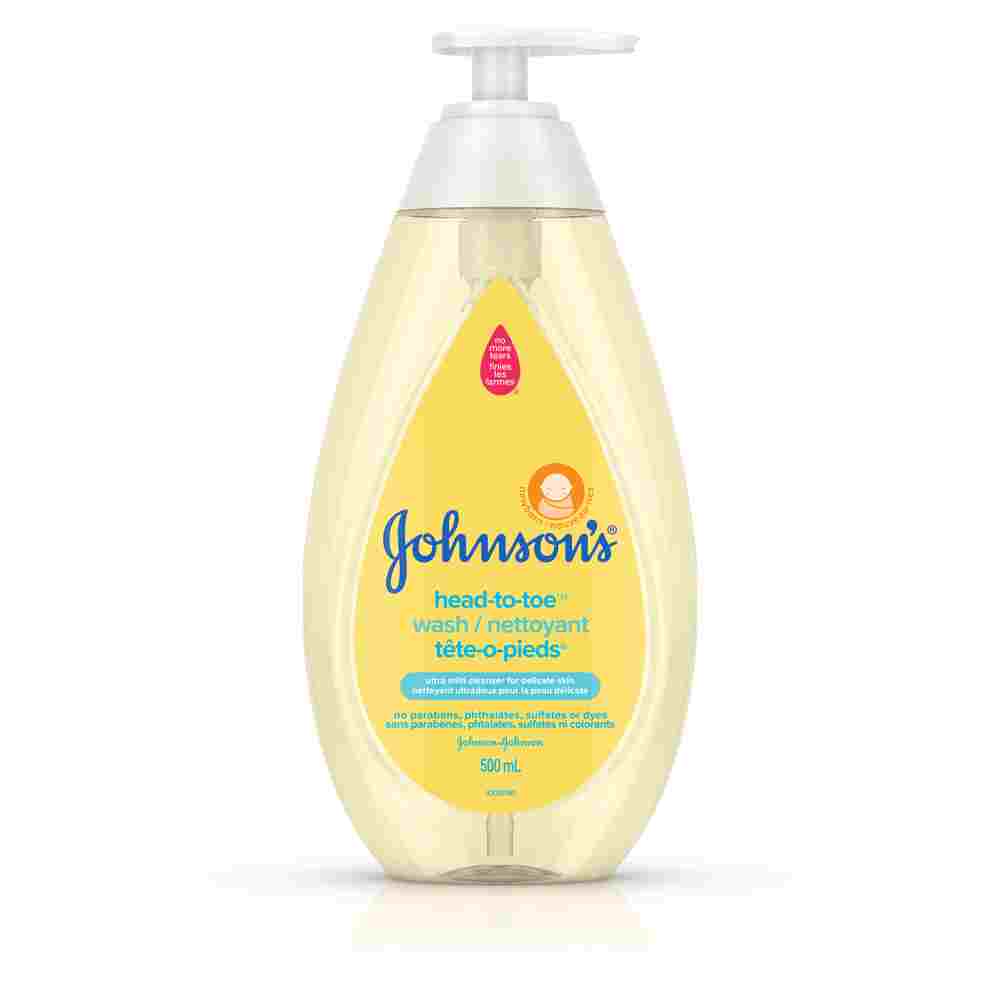
Step 1
Start a warm bath with JOHNSON’S® HEAD-TO-TOE® wash, made with our NO MORE TEARS® formula for a tear-free way to gently cleanse your baby’s sensitive skin.
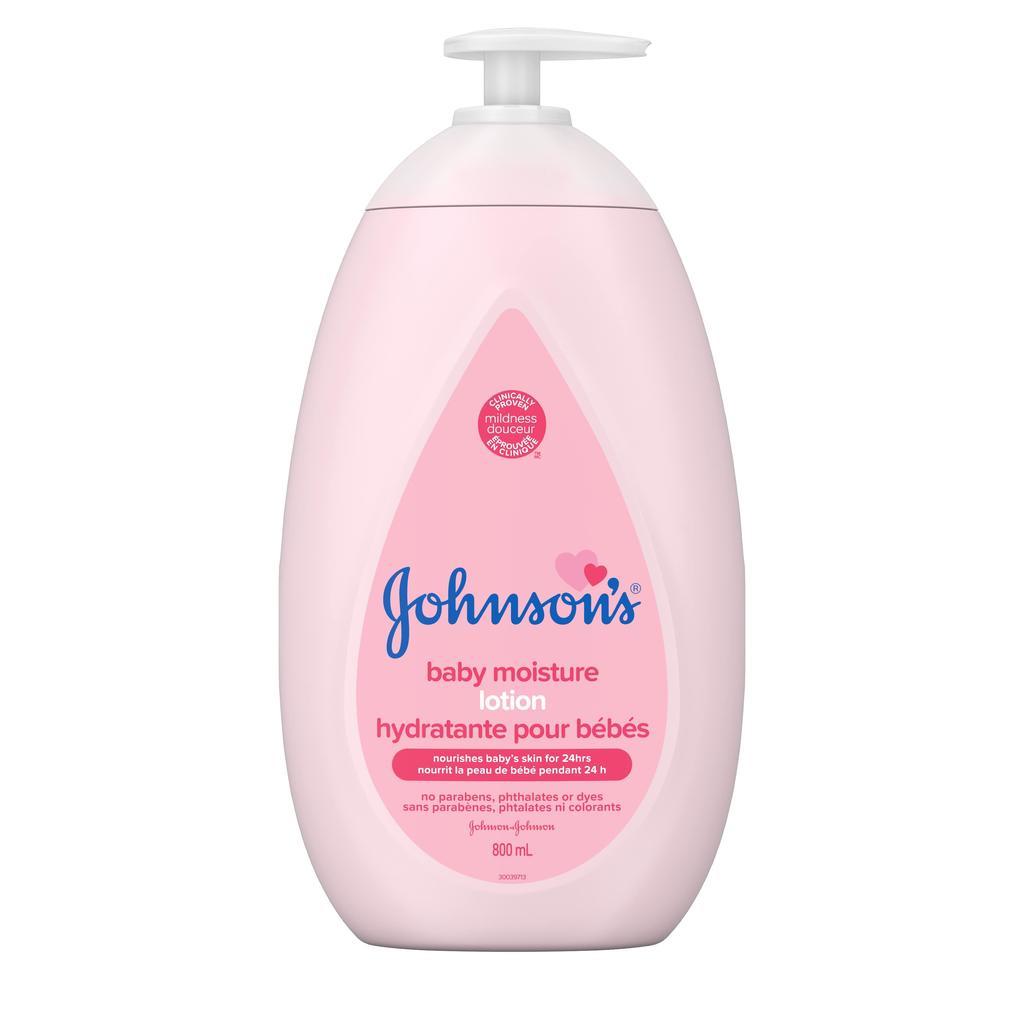
Step 2
Follow with a gentle massage using JOHNSON’S® Baby lotion that replenishes baby’s skin, leaving their skin soft, moisturized and feeling healthy.
Baby Bath Time Without the Bath
If you’re short on time and need to give your child a bath, use our JOHNSON’S® HEAD-TO-TOE® Washcloths. They’re pre-moistened and paraben- and phthalate-free, so you’re able to give little one a convenient and quick clean, anytime, anywhere.
How To Bathe a Baby
Watch this step-by-step video on how to bathe a baby for tips and tricks.

Did you know?
Your baby’s skin is 30% thinner than yours.
Baby Bath Tips & Tricks
Carve in bath time with baby in your schedule, so you’re able to bond with baby. Even stressful days can feel easier when you’re able to enjoy 1-on-1 time with baby – whether that’s during bath time and/or the moments after – like wrapping beautiful, clean baby in a snug and cozy blanket while singing a lullaby.
Only clean what you can see. Avoid inserting anything deep into baby’s ear canal or nose.
Some babies don’t like to be bathed soon after feeding. While every baby is different, many moms do find it’s best to bathe baby right before they eat.
Keeping bathtime fun is also making sure baby is safe. NEVER leave baby alone in the bath.
Keeping your water below 49 degrees Celsius will help prevent the possibility of scalding.
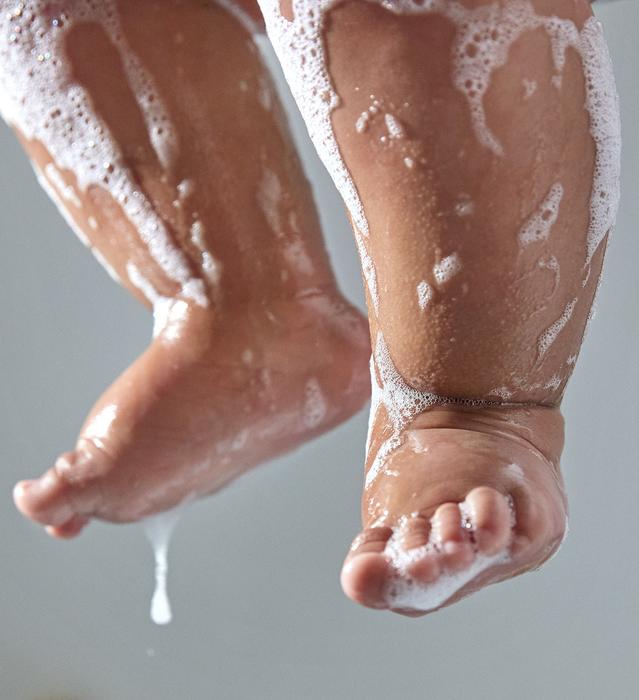
Wash With More Than Water
You’ll need more than just water to remove the fat-soluble impurities left behind from baby messes. If left on their delicate skin barrier*, the impurities can break their skin down. The use of water exclusively can actually dry out baby’s skin. Reports of repeated use of water only, especially when hard or chlorinated, has been shown to cause moisture loss from the skin cells which can leave baby’s skin irritated or red. A gentle baby-specific cleanser is recommended to cleanse effectively.
*The skin barrier is the upper layer of the skin that acts as a vital barrier to outside irritants, bacteria and allergens, helping protect the body from disease. Babies' skin barrier is uniquely different from adults’ and is still developing, so it needs special care.
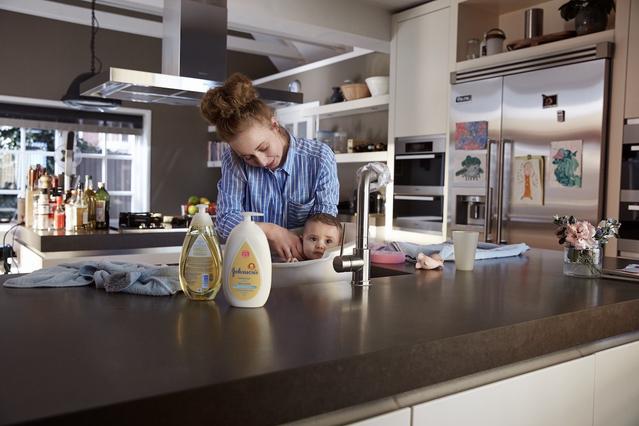
7-Step Baby Sponge Bath
Many pediatricians recommend giving your newborn a bath 2 to 3 times per week. You should increase the frequency as baby gets older. Remember, you can keep baby clean between baths with a sponge bath using a mild cleanser followed by moisturization with a baby oil or lotion.
How to Promote Social-Emotional Development During Baby Bath Time
Studies show that a touch between baby and parent will grow your bond. The perfect time to nurture that bond is during baby’s bath and cuddle time. It’ll help increase their happy and healthy development, promote social-emotional development, and enhance baby’s motor skills.
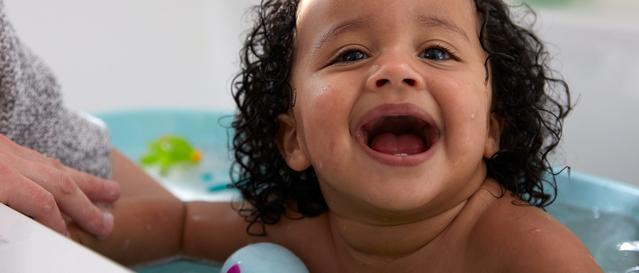
What You Can Do
Interact with baby and have fun celebrating their accomplishments. It can be as simple as squeezing the water from a sponge or floating a toy by them.
Exchange some splish-splash with baby back-and-forth to explore and encourage game-playing.
After bath time, share a bonding moment and cuddle up with baby.
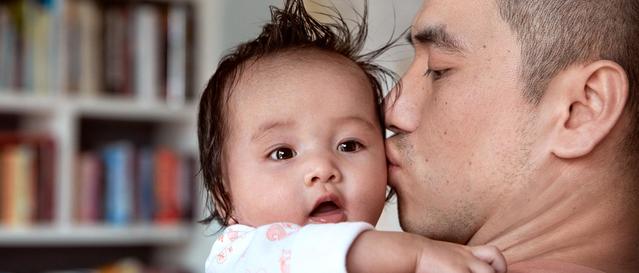
What This Teaches
Baby recognizes your actions as smart and competent, and they’ll delight in sharing discoveries together when playing together.
The back-and-forth of activities is a motor skill that can be developed together – rewarding baby with love and fun.
Builds self-esteem by showing baby how much you love them.